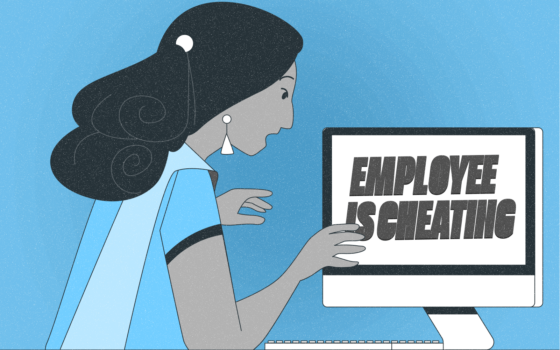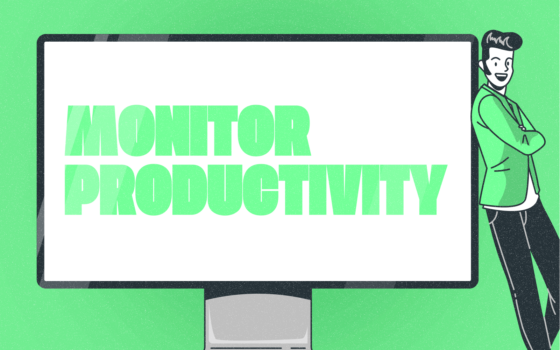How a Boss can Reduce Employee Work Fatigue
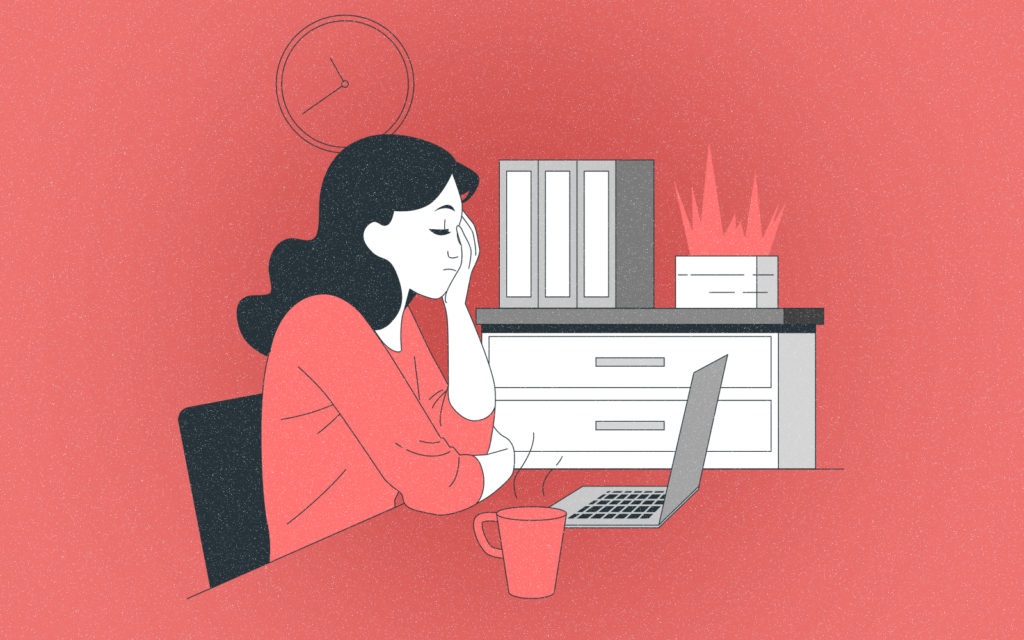
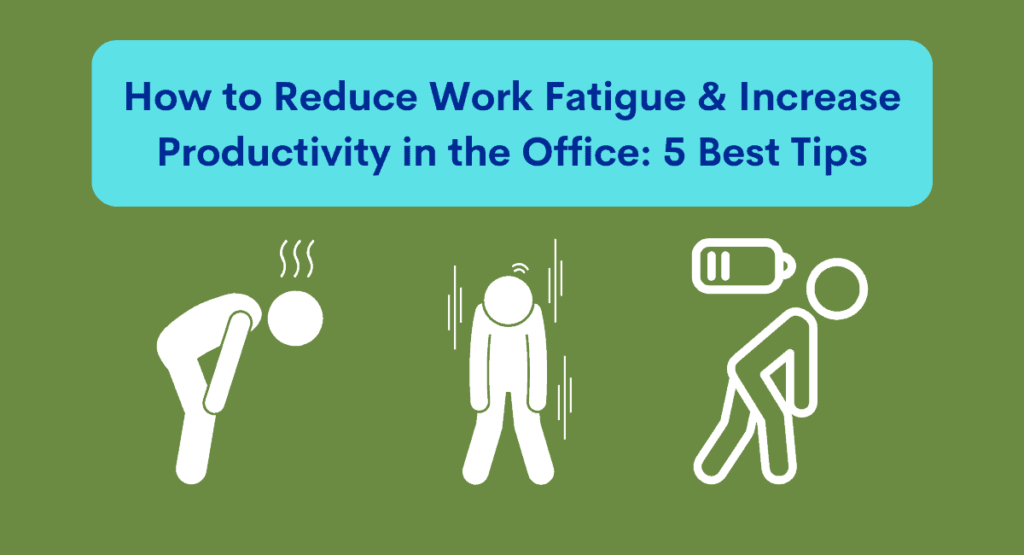
Are you feeling exhausted after work? Do you find it hard to focus and get things done in the office? If so, you’re not alone.
Many people suffer from work fatigue, which can be caused by several factors such as long hours, stress, and lack of sleep.
We will discuss five tips on reducing work fatigue and increasing office productivity!
What is work fatigue, and what causes it?
“Fatigue is not a disease. It’s not even a symptom. It’s an alarm system.” Dr. Jarred Younger.
Work fatigue is a state of physical and mental exhaustion caused by work-related stress. It can lead to several negative outcomes, including decreased productivity, mistakes, and accidents.
Some things can contribute to work fatigue, including long hours, monotonous work, and lack of control over work tasks.
Causes of work fatigue
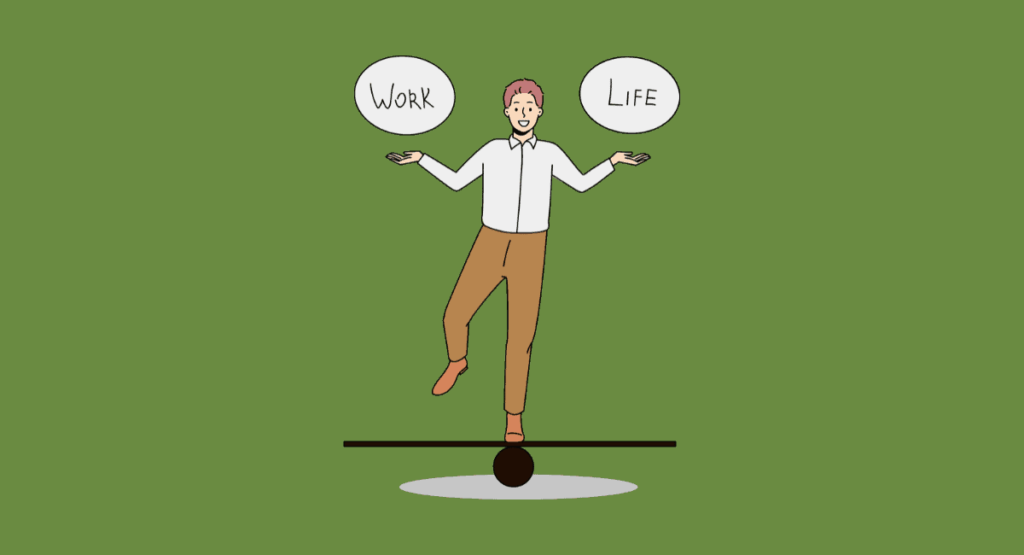
Many factors can contribute to work fatigue. Some of the most common causes of work fatigue include:
Poor work/life balance
When work and personal responsibilities are not correctly balanced, it can lead to work fatigue. When work demands constantly invade our time, it can be difficult to relax and rejuvenate. A full workload can lead to feeling exhausted and overwhelmed, which can negatively impact our productivity at work.
Stressful work environment
When work is stressful, it can be challenging to relax and rejuvenate. Stress can lead to feeling exhausted and overwhelmed, which can negatively impact our productivity at work. Stressful work environments can also cause physical health problems, such as high blood pressure and heart disease.
Excessive work hours
Excessive work hours can lead to work fatigue for a few reasons:
- When we work long hours, it cannot be easy to get enough sleep. Working long hours can cause us to be tired and less productive during the day.
- When we work long hours, it can be hard to take time for ourselves to relax and rejuvenate. No break time can lead to feeling exhausted and overwhelmed, which can negatively impact our productivity at work.
- Maintaining a healthy work/life balance can be more difficult when we work long hours.
Working long hours can lead to worker fatigue and decreased productivity.
Lack of sleep
We need to get enough sleep to stay healthy and feel good. When we don’t get enough sleep, it can harm our productivity and work performance. Lack of sleep can cause work fatigue for a few reasons.
First, when we don’t get enough sleep, it can be challenging to focus and be productive during the day. Additionally, when we don’t get enough sleep, it can be hard to take time for ourselves to relax and rejuvenate. Lack of sleep can lead to feeling overwhelmed, which can negatively impact our productivity at work.
Finally, lack of sleep can lead to physical health problems, such as high blood pressure and heart disease. All of these factors together can cause work fatigue and decreased productivity.
Poor nutrition
When we don’t eat well, it can harm our productivity and work performance. Poor nutrition can cause work fatigue for a few reasons.
First, focusing and being productive during the day can be challenging when we don’t eat well. Additionally, when we don’t eat well, it can be hard to take time for ourselves to relax and rejuvenate. Poor nutrition can lead to feeling exhausted and overwhelmed, which can negatively impact our productivity at work.
Finally, when we don’t eat well, it can lead to physical health problems, such as high blood pressure and heart disease. All of these factors together can cause work fatigue and decreased productivity.
Symptoms of work fatigue
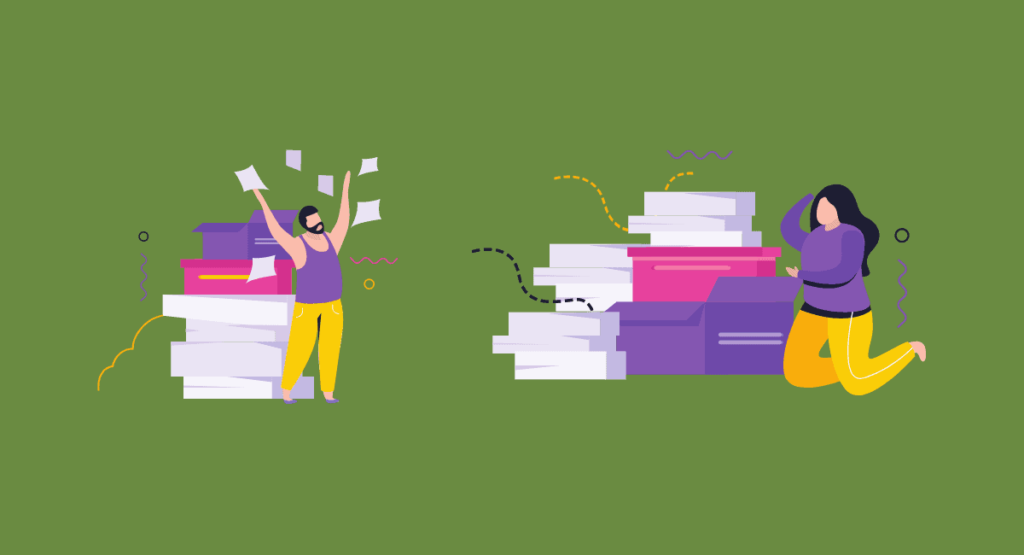
Work fatigue is a mental and physical condition caused by work-related stress. Symptoms of work fatigue can include difficulty concentrating, irritability, lack of motivation, headaches, and fatigue. Excessive work hours, monotonous tasks, and work-related stress can all contribute to work fatigue.
There are several ways a boss can reduce employee work fatigue. One way is to ensure that employees have adequate break time.
Employees should be given regular breaks throughout the day and be allowed to take time off if they feel overwhelmed or stressed. In addition, the design of the work environment should be minimalistic to minimize distractions and promote productivity.
Bosses can also help reduce work fatigue by providing employees with clear instructions and expectations and by offering training and support when needed.
How to reduce work fatigue
Workplace fatigue is a serious problem that can lead to accidents, errors, and decreased productivity. Long hours, early starts, shift work, or working in isolation often causes work fatigue.
You can do the 5 tips below to reduce workplace fatigue:
- Make sure you take regular breaks and use your vacation days. Fatigue can build up over time, so it’s essential to take a break before you reach your breaking point.
- Get enough sleep. A sleep-deprived person can experience fatigue, so ensure you get at least 7-8 hours of quality sleep each night.
- Eat healthily and exercise regularly. Eating well and staying active will help improve your energy levels and overall health.
- Connect with others. Hang-out with friends and family or talking to co-workers can help reduce stress and make work more manageable.
- Work-life balance is vital for preventing work fatigue. Employees should try to maintain a healthy work-life balance by setting realistic goals, taking breaks, and communicating with their boss about their workload. Hobbies can help you relax and de-stress when you’re not at work.
Talk to the HR department if you’re struggling with workplace fatigue. They may be able to offer accommodations or resources that can help you feel more rested and productive at work.
Get more out of your business
Get the best employee engagement content every week via mailing list
Fatigue Management Strategy

Work fatigue is a significant problem for businesses and employees alike. Fatigue can lead to accidents, mistakes, and absenteeism, costing companies valuable time and money. In addition, fatigue can also lead to health problems such as heart disease, obesity, and diabetes.
However, there are several ways to reduce the risk of fatigue at work. One important fatigue risk management strategy is ensuring employees have adequate rest periods throughout the day. Rest time may mean providing opportunities for employees to take short breaks or naps or simply ensuring plenty of windows in the workplace to allow for natural light exposure.
In addition, it is also essential to provide employees with healthy food options and to encourage them to stay hydrated during the workday.
Fatigue management programs aim to reduce the incidence and severity of fatigue by identifying and addressing its causes. Common strategies for reducing fatigue include:
- Scheduling breaks.
- Increasing lighting and ventilation.
- Adjusting work hours.
- Providing employees with training on how to recognize and cope with fatigue.
Additional tips to increase productivity in the office
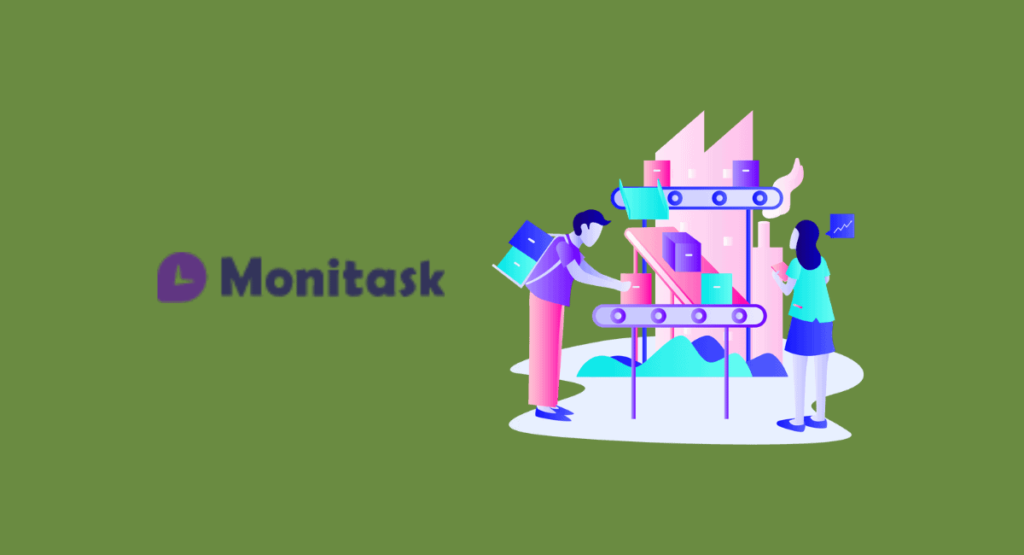
It is all about the impact of bad time management. Workplace factors in managing fatigue have a great contribution. You can use time management, task management and project management software.
At work, we are often juggling multiple tasks and projects simultaneously. Juggling projects can lead to work fatigue, as our brain gets tired from constantly switching gears. One way to combat this is to use a tool like Monitask, which helps you focus on one task at a time.
How Monitask help reduce work fatigue
Monitask is a time management tool that helps you focus on one task at a time. Monitask software solution can help reduce worker fatigue, as your brain doesn’t have to switch gears constantly.
By focusing on one task, you’ll be able to work more efficiently and avoid distractions. Monitask also helps you track your progress and stay on track with your work.
If you’re looking for ways to reduce work fatigue and increase productivity, Monitask is an excellent option.
Take advantage of technology:
Today, tons of tools can help with work productivity. From task management to project management software, there are many ways to increase efficiency and avoid distractions.
A software tool that can be particularly helpful is Monitask, which helps you focus on one task at a time. Monitask software solution can help reduce worker fatigue, as your brain doesn’t have to switch gears constantly.
Set realistic goals:
When we constantly try to accomplish too much, it can lead to work fatigue. Try developing smaller, accurate plans. You’ll be less likely to feel overwhelmed and stressed out by breaking down your work into manageable tasks.
In addition, be sure to take breaks throughout the day and allow yourself time to relax. Break time will help you recharge and avoid burning out from work.
If you struggle with work fatigue, try implementing some of these tips. You can reduce work fatigue and increase productivity in the office.
Ways to deal with work fatigue
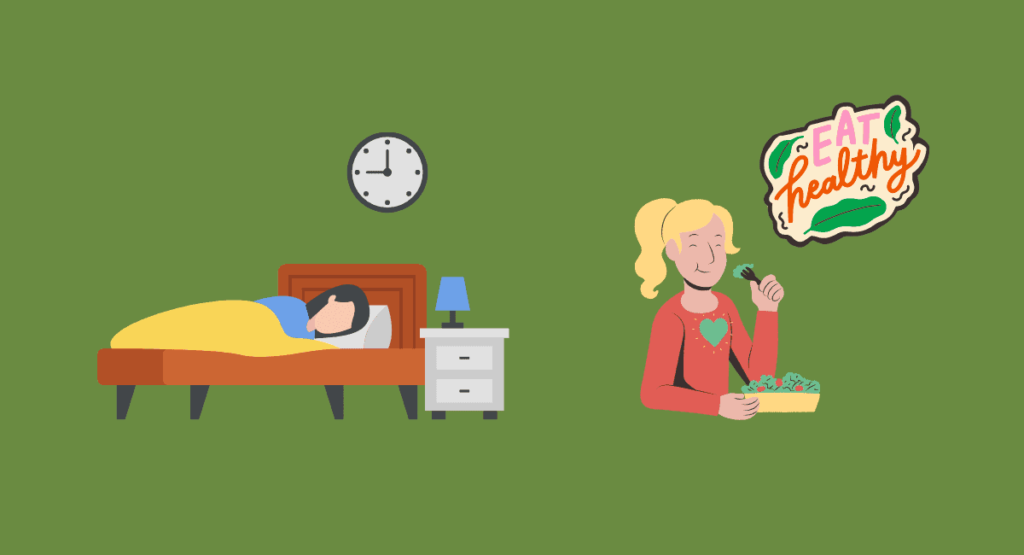
We’ve all been there before. You feel heavy-eyed and weighed down with fatigue. Work fatigue is a common issue many face daily, but it can be especially prevalent in the workplace.
Several factors can contribute to work fatigue, including long hours, stressful work conditions, and incorrect ergonomics. But regardless of the cause, work fatigue can significantly impact your productivity and performance at work.
Here are five tips to overcome work fatigue:
Get enough sleep:
A night of good sleep may seem obvious, but getting enough restful sleep each night is essential to avoid work fatigue. Adults usually sleep seven to eight hours per night.
Exercise regularly:
Exercise is a great way to combat work fatigue. It helps improve your energy levels and can even help reduce stress.
Eat healthily:
Eating a healthy diet can also help you fight work fatigue. Ensure to include plenty of fruits, vegetables, and whole grains in your diet. And limit your caffeine intake and sugary foods and drinks, as they can contribute to work fatigue.
Take breaks:
Take a break when you’re feeling fatigued at work! Get up, walk for a few minutes, or step outside for fresh air. Taking breaks will help you refresh your mind and body and can improve your productivity in the long run.
Create a positive work environment:
Create a positive work environment for yourself. A positive environment may include setting up an ergonomic workstation or investing in noise-canceling headphones. Creating a positive work environment can help reduce stress and make it easier to focus on your work.
By following these tips, you can combat work fatigue and improve your productivity at work. Give them a try and see how they work for you!
Solutions to reduce employee work fatigue
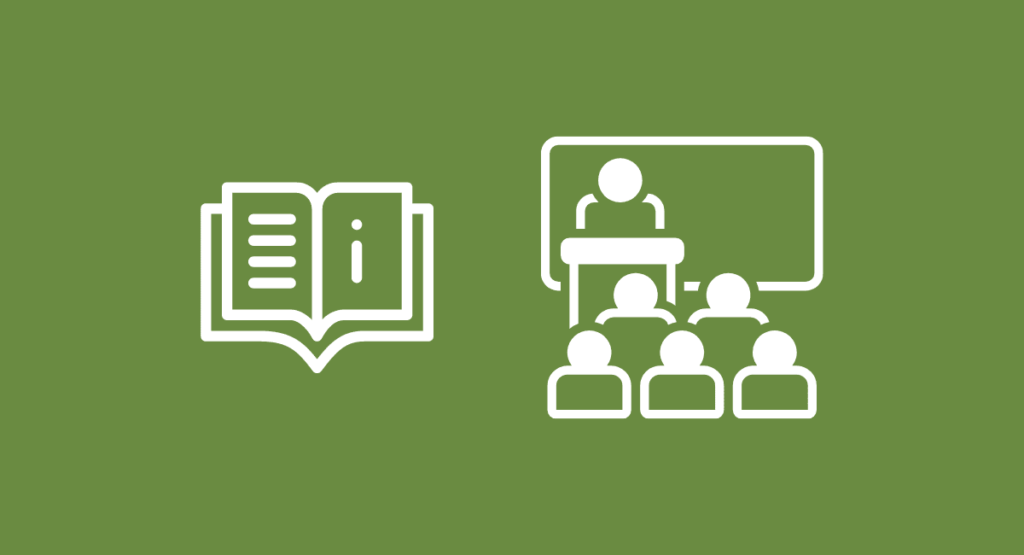
One way is to ensure that employees take regular breaks throughout the day. Scheduling breaks can do this into the workday or allowing employees to take breaks when they feel they need them.
In addition, bosses can ensure that employees have a healthy work-life balance by providing time off for vacations and holidays and allowing employees to work flexible hours if needed.
Another way to reduce work fatigue is to provide a comfortable work environment. Employees should have access to comfortable chairs and desks, and the work area should be well-lit and quiet.
Additionally, bosses can encourage employees to get up and move around regularly by providing opportunities for physical activity, such as walking meetings or standing at desks.
Finally, bosses can help reduce work fatigue by providing clear and concise instructions. Employers should give employees specific goals to work towards and break down tasks into manageable steps. Clear guidelines will help reduce stress levels and increase productivity.
What are some of the best things to do when I’m overwhelmed at work?
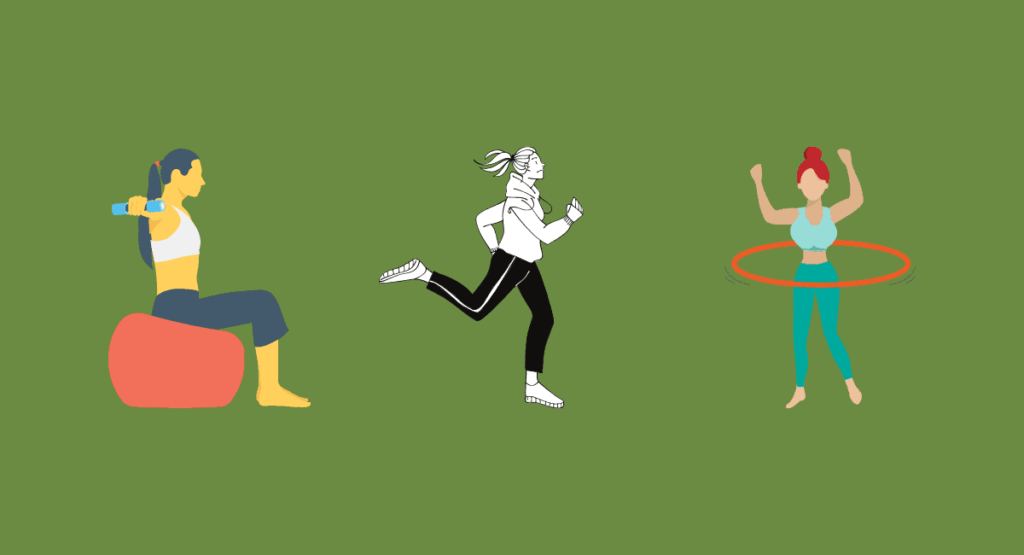
Work fatigue can be caused by many things, from long hours to stress to poor work/life balance. But you can do plenty of things to reduce work fatigue and increase productivity.
Here are five tips for reducing work fatigue:
1) Take breaks often
2) Get enough sleep
3) Eat healthy foods
4) Exercise regularly
5) Set boundaries between work and personal life
Conclusion
So what can you do to reduce work fatigue and increase productivity in the office? Here are the five best tips:
1. Use a tool like Monitask to focus on one task at a time. Monitask software solution will help you avoid getting overwhelmed and stressed out.
2. Take breaks every hour or two to give your brain a chance to rest and recharge. Get up, move around, or take deep breaths to calm down.
3. Make sure your workspace setting is ergonomically correct so you’re not putting unnecessary strain on your body.
4. Avoid working long hours, if possible. Try to break up your workday into manageable chunks, so you don’t get burned out.
5. Pick Monitask as your best alternative solution! The Monitask solution allows you to easily manage your tasks and projects without feeling overwhelmed or exhausted.
